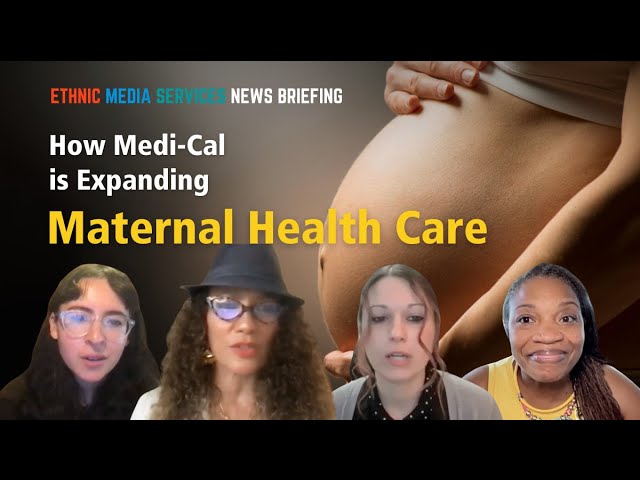Vidya Sethuraman
India Post News Service
The United States, including California, is currently facing a medical crisis in maternal care. Relevant data shows that 80% of maternal deaths or diseases are preventable. It is best to identify warning signs at an early stage rather than waiting until a crisis strikes before going to the emergency room.
As the Department of Health Care Services (DHCS) continues to transform Medi-Cal, it is expanding access to maternal health through doula services, a birthing care pathway for members from conception through 12 months postpartum, parent-child dyadic care, and other benefits for pregnant members, including some over the Medi-Cal income limit.
Doulas are essential to closing racial and ethnic disparities in outcomes for Black, American Indian, Latino, and Asian American and Pacific Islander parents and infants, as doula care can help improve birth outcomes and reduce C-sections, epidurals, premature deliveries, low birth weight, anxiety, and labor length.
At the EMS briefing on June 4, a DHCS leader and two doula-community health care providers shared how Medi-Cal maternal health programs are helping families and babies live healthier lives through and well beyond conception. Medi-Cal, California’s Medicaid program, covers one in three Californians or 15 million, including 1.3 million children.
Medi-Cal coverage includes expanded services, like doula visits, to go well beyond the doctor’s office or hospital to meet all of a member’s physical and mental health needs. They visit patients twice in postpartum to discuss the birth, provide a meal, answer questions about nutrition and newborn care, and help with breastfeeding.
Erica Holmes, Chief, Benefits Division, Department of Health Care Services (DHCS) said that in addition to some traditional maternal benefits (such as prenatal care, ultrasound, etc.), California Medicaid sonograms and inpatient care), also covers doula and midwife care and supports the racial, ethnic, linguistic and cultural diversity needs of medical staff. Doulas can provide emotional and physical support to pregnant women, with services including prenatal and postpartum, delivery, newborn and infant care guidance, health navigation, evidence-based education, and more. Medi-Cal members don’t need any doctor’s recommendation to get the service, and California has the highest reimbursement for doula services in the country.
Kairis Chiaji, Medi-Cal doula provider founder of the “Children of the Sun” doula project, has been working as a doula for more than 25 years. She said that doula services are equivalent to personal training for pregnant women so that they know how to care. For example, they can pay attention to whether new mothers have postpartum depression after giving birth signs, and caring for your baby after delivery. According to data, doula services can effectively support people who have given birth, have abortions, or miscarriage, and can provide support even one year after delivery. Women are often more vulnerable one year after delivery, and such services can effectively improve their health conditions.
Khefri Riley, Medi-Cal doula provider said black and indigenous communities tend to suffer the greatest inequalities in this regard, with neonatal mortality and childbirth death risks three to five times higher than average. In fact, many deaths are preventable, and with doula services, the risk can be significantly reduced during pregnancy, childbirth, and postpartum.
Also Read: How Medi-Cal Transformation is Expanding Access to Behavioral Health Care Services







